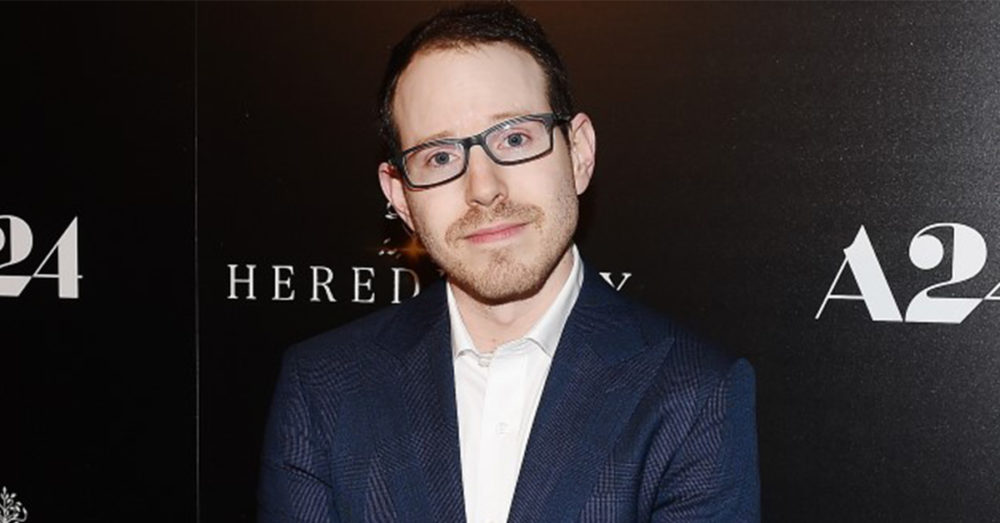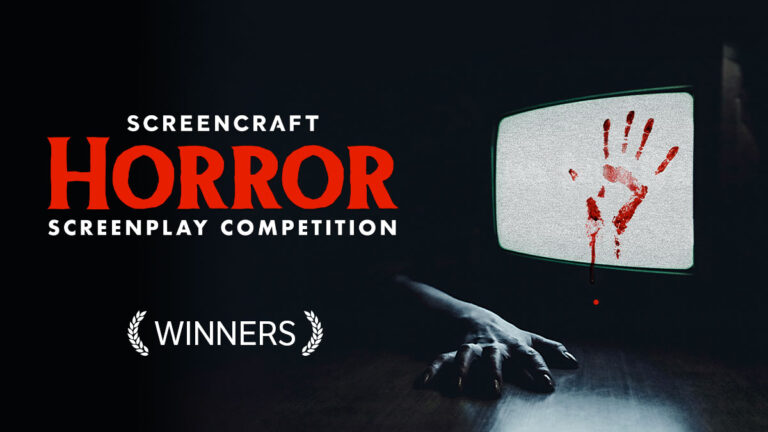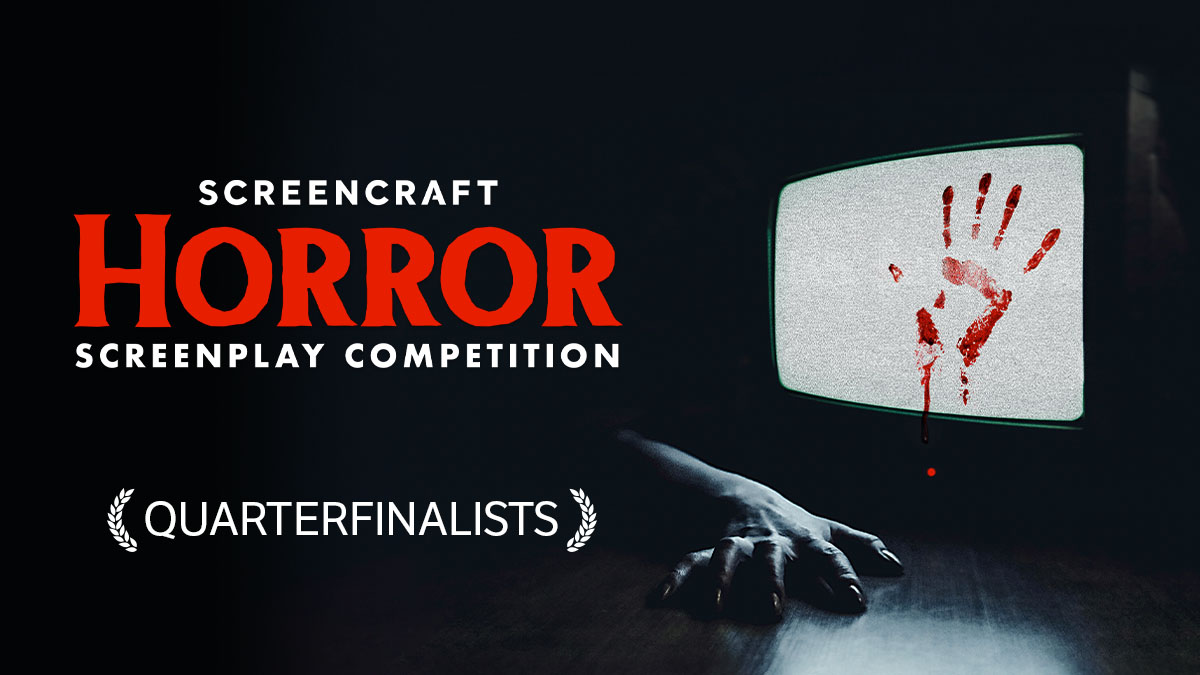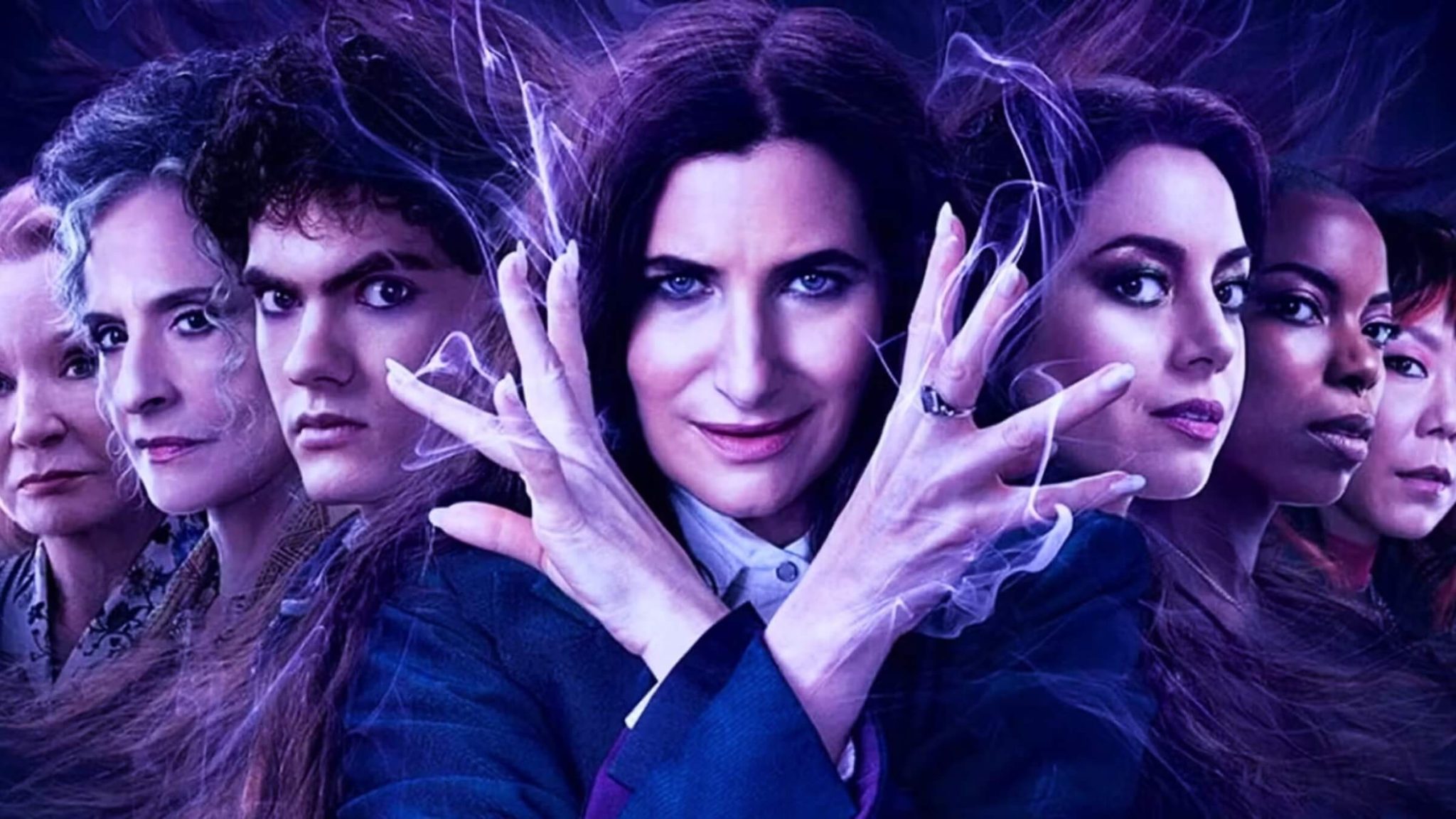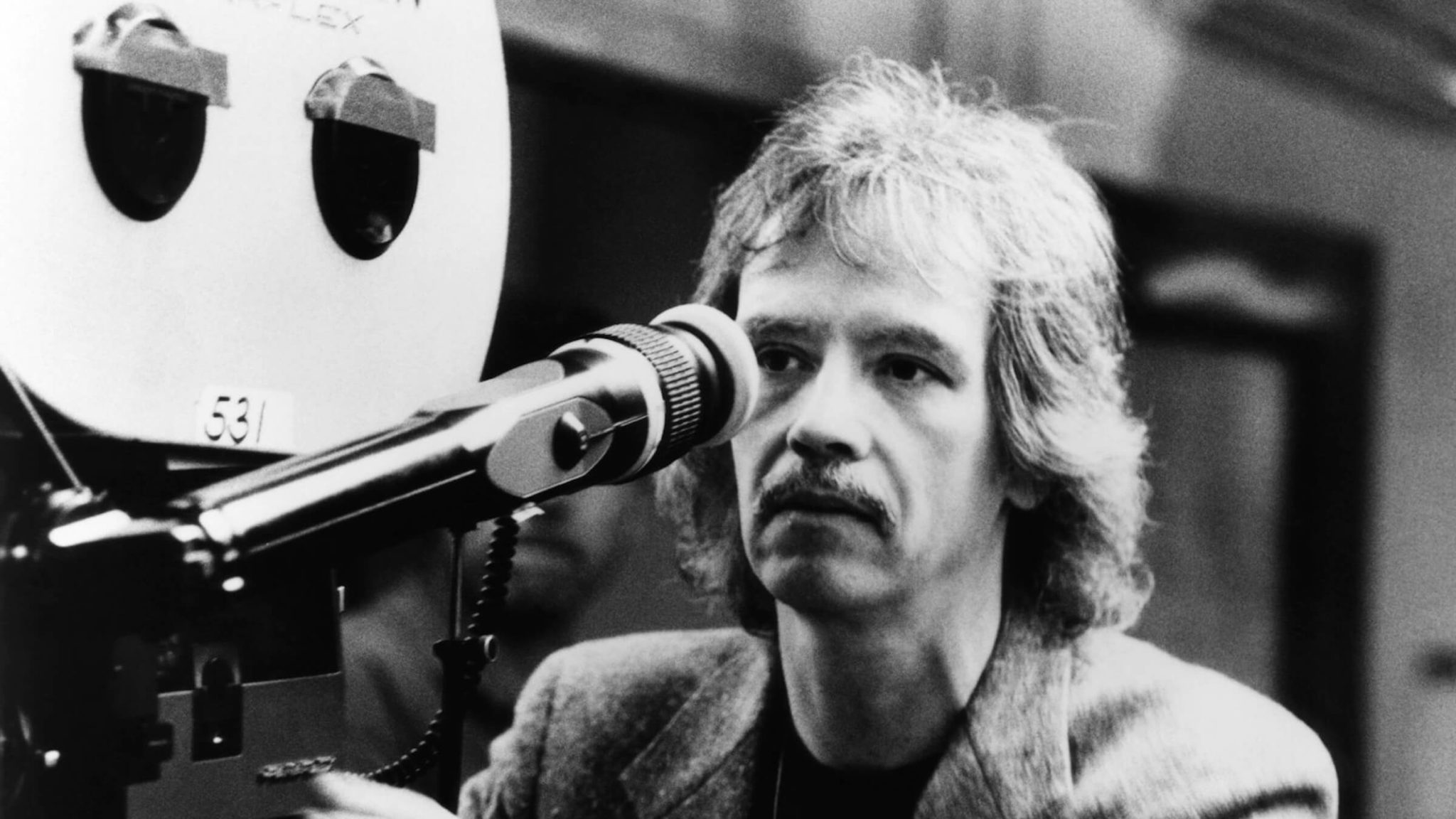5 Horror Lessons from HEREDITARY Writer/Director Ari Aster
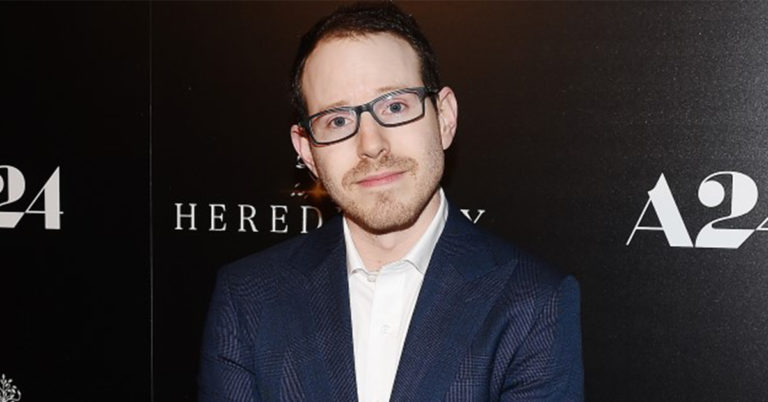
If you haven’t seen Hereditary yet, you should probably a) stop reading, since this piece is geared towards those who have watched the film, and b) stop what you’re doing and check it out right now, because it’s pretty remarkable.
There’s a lot going on in Ari Aster’s unique debut. The story of a grieving family who falls apart after the loss of a matriarch and the unspeakable tragedy which follows Hereditary is the rare indie that has earned rave reviews and scored at the box office. Making all of this even more noteworthy is the fact that the film is, ostensibly, a horror movie. But as those who’ve seen Hereditary already know, this isn’t your average fright fest. There are no jump scares, no monsters, and no final girls. Instead, there are just haunting images, and the spectacle of a family disintegrating until their dysfunction literally turns evil.
Already have a horror script? Enter the ScreenCraft Horror Screenplay Contest here.
Aspiring horror writers should take note. Hereditary plays with conventions of the genre to become both a horror film and something more. For those who are also looking to turn out an original horror screenplay of their own, here are some tips you can learn from Aster.
1. Be a student of horror.
Part of the reason Aster was able to upend conventions of the horror genre so well was because he knew them front and back. In an interview with No Film School, Aster recently said, “I used to be obsessed with horror films, starting when I was 12. I exhausted the horror section of every video store I could find. And I've always had something of a dark sensibility.”
You don’t necessarily have to be a fan or horror movies to write a good one, but it certainly helps. Aster’s case is a classic ‘you have to know the rules before you break them’ one. Having a dark sensibility can work across multiple genres, but being a student of horror, in particular, means knowing how to push an audience’s buttons.
Not that all horror films need to function the same. Aster has talked about screening Rosemary’s Baby and Don’t Look Now for his team on Hereditary, but neither of those films are what you would call typical horror movies. Again, the key is to know how far you can push the genre conventions before you try and blow them up altogether.
2. There’s nothing scarier than the human psyche.
In many ways, the most disturbing scenes in Hereditary are just the ones of the Graham family falling apart. Annie (Toni Collette) yelling at Peter (Alex Wolff) over the dinner table is nearly as off-putting as any of the actual violence in the movie. All of this was intentional on Aster’s part. “I think a part of that comes from me being a neurotic guy who's hypochondriacal, and my imagination always goes to the worst-case scenario,” he goes on to tell No Film School. “So it's a no-brainer for me as a filmmaker to go to that kind of material. It's something of a relief to be able to inflict these worst-case scenarios on invented characters instead of projections of my future self.”
All of this was intentional on Aster’s part. “I think a part of that comes from me being a neurotic guy who's hypochondriacal, and my imagination always goes to the worst-case scenario,” he goes on to tell No Film School. “So it's a no-brainer for me as a filmmaker to go to that kind of material. It's something of a relief to be able to inflict these worst-case scenarios on invented characters instead of projections of my future self.”
The kind of fatalism Aster is talking about isn’t, you know, healthy. However, his point about the fears and neuroses lurking right beneath the surface makes a lot of sense. After all, aren’t the best horror movies always less about the monsters, and more about what the monsters represent?
Hereditary is the latest in a long line of great horror films about anxieties related to motherhood, including Rosemary’s Baby, The Exorcist, and The Babadook. It’s also as much about mourning and depression as it is about supernatural scares. In an interview with SyFy, Aster talked about how the seed of this idea came from problems within his own family. Eventually, things got so bad he started to feel like they were cursed. What eventually came out of this was not an autobiographical story, but a meditation on how dread and depression can manifest.  This personal, innately psychological element is what gives Hereditary its edge. The visuals Aster conjures would’ve been haunting no matter what, but they’re made all the more haunting by the human realities behind them.
This personal, innately psychological element is what gives Hereditary its edge. The visuals Aster conjures would’ve been haunting no matter what, but they’re made all the more haunting by the human realities behind them.
3. What doesn’t kill you… sometimes kills you.
Hereditary takes the rather tired theme of family perseverance and flips it on its head. Rather than making a movie about a family who goes through tough times and comes out the other end okay, Aster used his own experiences to imagine a family that doesn’t make it.
“With this film, I really wanted to make a film about people suffering,” said Aster. “I wanted to make a film about grief and trauma. I wanted to make a film that was honest about those things. I feel like there's a trend of American domestic dramas and tragedies where a family suffers a loss, things get hairy for a while, it gets tumultuous, and communication breaks down... but ultimately, the bonds are strengthened, and everything's going to be okay. People have been brought together by the experience… And there's nothing inherently false about that idea, but it's not always the case. Some people don't recover.”
Hereditary is, fundamentally, a movie about people incapable of recovering. It may sound like a strange lesson for a screenwriter, as we are so used to hero's journeys where the heroes come out the other end bruised but not beaten. But in Hereditary, there are no heroes, and the journey ends in not only defeat, but devastation. If this doesn’t sound like a lot of fun, you’re right. Hereditary is brutal. The film was able to be so bleak and yet be successful because Aster was able to…
If this doesn’t sound like a lot of fun, you’re right. Hereditary is brutal. The film was able to be so bleak and yet be successful because Aster was able to…
4. Use horror as a vessel for drama.
In horror, we experience things taboo to normal society. Violence, fear, cruelty. These things become entertaining because the genre facilitates it. But that doesn’t mean they aren’t also very real.
Aster says, “the beauty of the horror genre is that you can tell a bleaker, more uncompromising story.” With Hereditary, he told that story of loss and trauma in a way he wouldn’t be allowed to in another genre. In fact, he’s outright stated the reason he made Hereditary as a horror film is because he believed it would be easier for him to secure financing. And although he screened Rosemary’s Baby and Don’t Look Now for his crew, he’s also stated that the rest of the films he showed them were domestic dramas. This is why the family scenes in hereditary stand out so much. The depression of the Graham family is not just window-dressing in this horror movie, it’s the vessel for the horror itself. Aster was able to tell a more complicated story because he approached the horror genre from a human angle. Rather than make a depressing drama which no one would go see, he made a depressing horror movie which people loved.
This is why the family scenes in hereditary stand out so much. The depression of the Graham family is not just window-dressing in this horror movie, it’s the vessel for the horror itself. Aster was able to tell a more complicated story because he approached the horror genre from a human angle. Rather than make a depressing drama which no one would go see, he made a depressing horror movie which people loved.
For aspiring writers who want to tell an ambitious, dark story but don’t know how, Hereditary is a testament to the power of genre. If you can’t figure out how to communicate your complex ideas in a way that will still be palatable for the audience, you should do like Aster did, and consider using horror as a way in.
5. It comes down to the script.
After graduating from film school in Santa Fe, Aster went to get his masters at AFI. Is was there he made a short that went viral, called The Strange Thing About the Johnsons. After the online success of this film, it should’ve in theory been easy for Aster to negotiate his way into directing a feature. Instead took seven years for Aster to get Hereditary off the ground. “It helped in that people had seen what a film directed by me might look like,” says Aster, “But it didn't help me get a feature.”
So what did get the movie greenlit? “With Hereditary, really, what it came down to was the script,” Aster continues. “And then from there, you say, ‘You can only have the script if I come attached as a director.’” For all aspiring writer/directors out there, this may ultimately be the most important advice of all. Honing your craft is important. Directing a great short that will get you noticed is important. But you want people to hand you a couple million to make a feature? You better have a good script.
For all aspiring writer/directors out there, this may ultimately be the most important advice of all. Honing your craft is important. Directing a great short that will get you noticed is important. But you want people to hand you a couple million to make a feature? You better have a good script.
Like so many before him, once Aster had perfected Hereditary on the page, he was able to parlay his work on the script into the chance to direct. This isn’t to say of course that making short films isn’t important, or that one great script guarantees you a shot behind the camera. However, if you can write a script someone just has to buy, you’ve got a lot better chance at not only getting your movie made, but of sitting behind the director’s chair too.
As always, write write write. Write until you have that one feature so good, financiers are practically begging you to make it.
 Chris Osterndorf is a freelance writer from Milwaukee who studied cinema at DePaul University in Chicago. When he's not watching movies, he's writing them or writing about them. He's especially partial to romantic comedies and crime films. He currently lives in Los Angeles.
Chris Osterndorf is a freelance writer from Milwaukee who studied cinema at DePaul University in Chicago. When he's not watching movies, he's writing them or writing about them. He's especially partial to romantic comedies and crime films. He currently lives in Los Angeles.
Photo credit: Paste Magazine
For all the latest ScreenCraft news and updates, follow us on Twitter, Facebook, and Instagram.
Tags
Get Our Screenwriting Newsletter!
Get weekly writing inspiration delivered to your inbox - including industry news, popular articles, and more!


